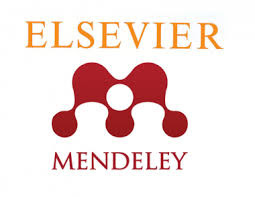INTERNATIONAL JOURNAL OF CREATIVE RESEARCH THOUGHTS - IJCRT (IJCRT.ORG)
International Peer Reviewed & Refereed Journals, Open Access Journal
ISSN Approved Journal No: 2320-2882 | Impact factor: 7.97 | ESTD Year: 2013
Call For Paper - Volume 12 | Issue 7 | Month- July 2024
Scholarly open access journals, Peer-reviewed, and Refereed Journals, Impact factor 7.97 (Calculate by google scholar and Semantic Scholar | AI-Powered Research Tool) , Multidisciplinary, Monthly, Indexing in all major database & Metadata, Citation Generator, Digital Object Identifier(DOI)
Contact Us Click Here
WhatsApp Contact Click Here
Published Paper Details:
Paper Title
REVIEW AND ANALYSIS ON DEEP LEARNING BASED APPROACH ON ARTIFICIAL EMOTIONAL INTELLIGENCE
Authors
Harikrushnareddy vangala
Keywords
Deep learning, Emotion recognition, Convolutional neural network, Long short-term memory mobile sensing
Abstract
The goal of this study is to investigate how authors ability to recognise and convey emotions through words and expressions changes in an online, adaptive learning environment. The effectiveness of a method developed to improve a convolution neural network's performance using Bidirectional Long Short-Term Memory is verified through a simulated exercise (CNN-BiLSTM). It was decided to do this after carefully examining the deep learning neural network methods already available. Based on the experimental results, the CNN-BiLSTM method provided in this article achieves an accuracy of up to 98.75%, which is at least 3.15 percentage points more than the accuracy of other algorithms. The book "Deep Learning-Based Artificial Emotional Intelligence" delves at the ways in which AI has been used to emotional intelligence, specifically to the goals of accelerating and augmenting emotional intelligence. Some examples of artificial intelligence applications that are investigated include machine learning and deep learning. It offers research on tools that may be utilised by system architects and designers to ease and streamline the process of developing deep learning systems. Specifically, we employ a deep learning approach for labelling feelings in our research. In this method, a huge number of sensor inputs from different modalities are added and subtracted in an iterative process. Our dataset was derived from information collected by multiple smartphones and wearables in a real-world investigation. It does so by displaying signal dynamics and the temporal correlations between the various sensor modalities, all of which are gathered from a unified model that incorporates on-body, ambient, and location sensors. The raw sensor data is fed into numerous learning methods, including a hybrid that employs both convolutional neural networks and long short-term memory recurrent neural networks (CNN-LSTM). Thus, feature engineering and extraction can be carried out automatically.
IJCRT's Publication Details
Unique Identification Number - IJCRT2302302
Paper ID - 231157
Page Number(s) - c448-c457
Pubished in - Volume 11 | Issue 2 | February 2023
DOI (Digital Object Identifier) - http://doi.one/10.1729/Journal.35514
Publisher Name - IJCRT | www.ijcrt.org | ISSN : 2320-2882
E-ISSN Number - 2320-2882
Cite this article
Harikrushnareddy vangala, "REVIEW AND ANALYSIS ON DEEP LEARNING BASED APPROACH ON ARTIFICIAL EMOTIONAL INTELLIGENCE", International Journal of Creative Research Thoughts (IJCRT), ISSN:2320-2882, Volume.11, Issue 2, pp.c448-c457, February 2023, Available at :http://www.ijcrt.org/papers/IJCRT2302302.pdf
Article Preview
Indexing Partners
Call For Paper July 2024
Call For Papers
July 2024
Volume 12 | Issue 7
Last Date :
31-Jul-2024
Submit Manuscript Online Impact Factor: 7.97 Review Results : Within 02-03 Days Paper Publication : Within 02-03 Days
July 2024
Volume 12 | Issue 7
Last Date :
31-Jul-2024
Submit Manuscript Online Impact Factor: 7.97 Review Results : Within 02-03 Days Paper Publication : Within 02-03 Days
Published Issue Details
For Authors
Forms / Downloads
Other IMP Links
Indexing Partner
Research Area
LICENSE
ISSN and 7.97 Impact Factor Details

ISSN: 2320-2882 Impact Factor: 7.97 and ISSN APPROVED Journal Starting Year (ESTD) : 2013
ISSN and 7.97 Impact Factor Details

ISSN: 2320-2882 Impact Factor: 7.97 and ISSN APPROVED Journal Starting Year (ESTD) : 2013
DOI Details
CONFERENCE
CONFERENCE MANAGMENT & PUBLICATION CONFERENCE PROPOSAL
RECENT CONFERENCE

CONFERENCE PROPOSAL CONFERENCE PROCEEDINGS

CONFERENCE PROPOSAL CONFERENCE PROCEEDINGS
For Reviewer /Referral (RMS) Earn 500 per paper
Important Links
NEWS & Conference
Digital Library
IJCRT RMS | Earn 500 Per Paper.
LICENSE
Indexing Partner





































































